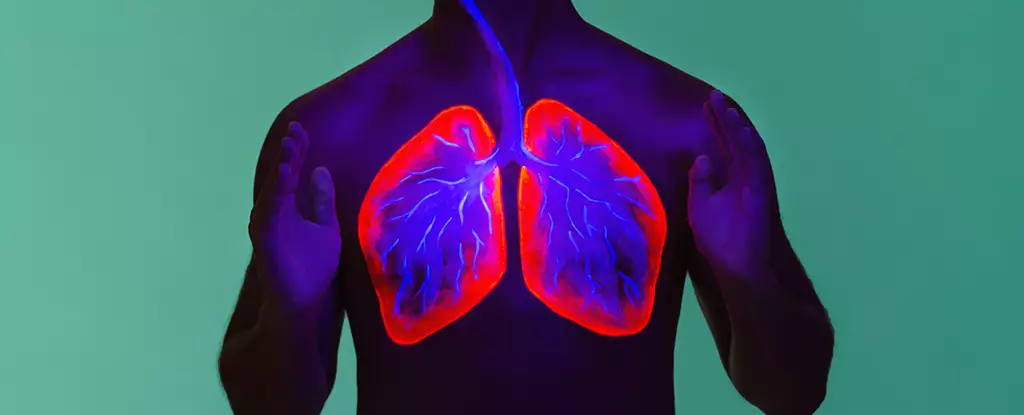While smoking and air pollution have long dominated conversations surrounding lung cancer risks, recent research calls our attention to an oft-overlooked factor: diet. Groundbreaking studies from the University of Florida and the University of Kentucky reveal that glycogen, a molecule largely associated with energy storage, could significantly influence the progression of lung cancer, specifically lung adenocarcinoma, which accounts for a staggering 40% of lung cancer cases globally.
This correlation indicates an alarming trend: the standard Western diet, characterized by high levels of carbohydrates and fats, could be a silent player in the lung cancer epidemic. The researchers cleverly applied spatial metabolomics to understand the relationship between glycogen levels and lung cancer more clearly. This innovative technique allows scientists to analyze the concentration of small molecules within their biological contexts, facilitating a new depth of insight into cancer biology.
Glycogen: An Unexpected Fuel for Cancer Growth
Glycogen, primarily known for its role in storing glucose derived from carbohydrates, has been discovered to inadvertently serve as a ‘fuel’ for cancer cells, helping them to thrive and proliferate rapidly. The study indicated that elevated glycogen levels were evident in tissue samples from patients with lung adenocarcinoma. Furthermore, experiments conducted on mice demonstrated that higher glycogen levels led to accelerated tumor growth, underscoring the molecule’s potential as a critical player in cancer development.
This revelation presents an urgent need for a paradigm shift in how we understand cancer risk factors. If glycogen can indeed be implicated in lung cancer progression due to dietary intake, it casts a shadow over dietary choices that may have been previously deemed benign or unrelated to cancer.
The Impact of Diet: A Double-Edged Sword
Researchers observed that mice on high-fat, high-carbohydrate diets exhibited significantly heightened tumor growth in comparison to their counterparts on more controlled diets. This finding suggests that while glycogen is vital for bodily functions — serving as an energy reserve for muscles during exercise — an abundance of it appears to create an inviting environment for cancer cells to flourish.
This association prompts a critical conversation about the types of foods consumed in today’s society. With an increasing reliance on processed foods that are rich in carbohydrates and fats, the potential for glycogen-related health issues, including lung cancer, may be larger than typically acknowledged.
The Importance of Nutritional Awareness
Given these insights, it becomes clear that cancer prevention strategies must evolve. As highlighted by molecular biologist Ramon Sun, there is a strong case for integrating dietary awareness into public health campaigns, similar to the successful anti-smoking initiatives. While smoking cessation has etablished itself as a pillar of lung cancer prevention, dietary recommendations have yet to reach similar prominence.
This might seem surprising, as lung cancer has not typically been classified as a diet-related disease. However, just as research has evolved our understanding of how alcohol consumption and red meat consumption correlate with various cancers, we must confront the reality that our diets play a more substantial role in lung health than previously recognized.
A Broader Perspective on Cancer Research
Furthermore, while glycogen levels have shown an association specifically with lung adenocarcinoma, the absence of similar findings in other lung cancer types like lung squamous cell carcinoma indicates that our understanding of diet as a cancer factor is still incomplete. It is essential for upcoming studies to further investigate this association, examining how differing cancers interact with dietary variables.
Despite the apparent complexities of these connections, the emerging data compels us to reconsider our everyday choices — not just in terms of tobacco use but also our dietary habits. The significance of nutritional decisions cannot be overstated; our plates could become pivotal in fighting diseases we may not have traditionally linked to our dining tables.
Ultimately, acknowledging and addressing the dietary components of cancer risk holds the promise to revolutionize our approach to health and wellness. By fostering greater awareness of the foods we consume, we might not only reduce lung cancer risks but also create a healthier society overall.


Leave a Reply